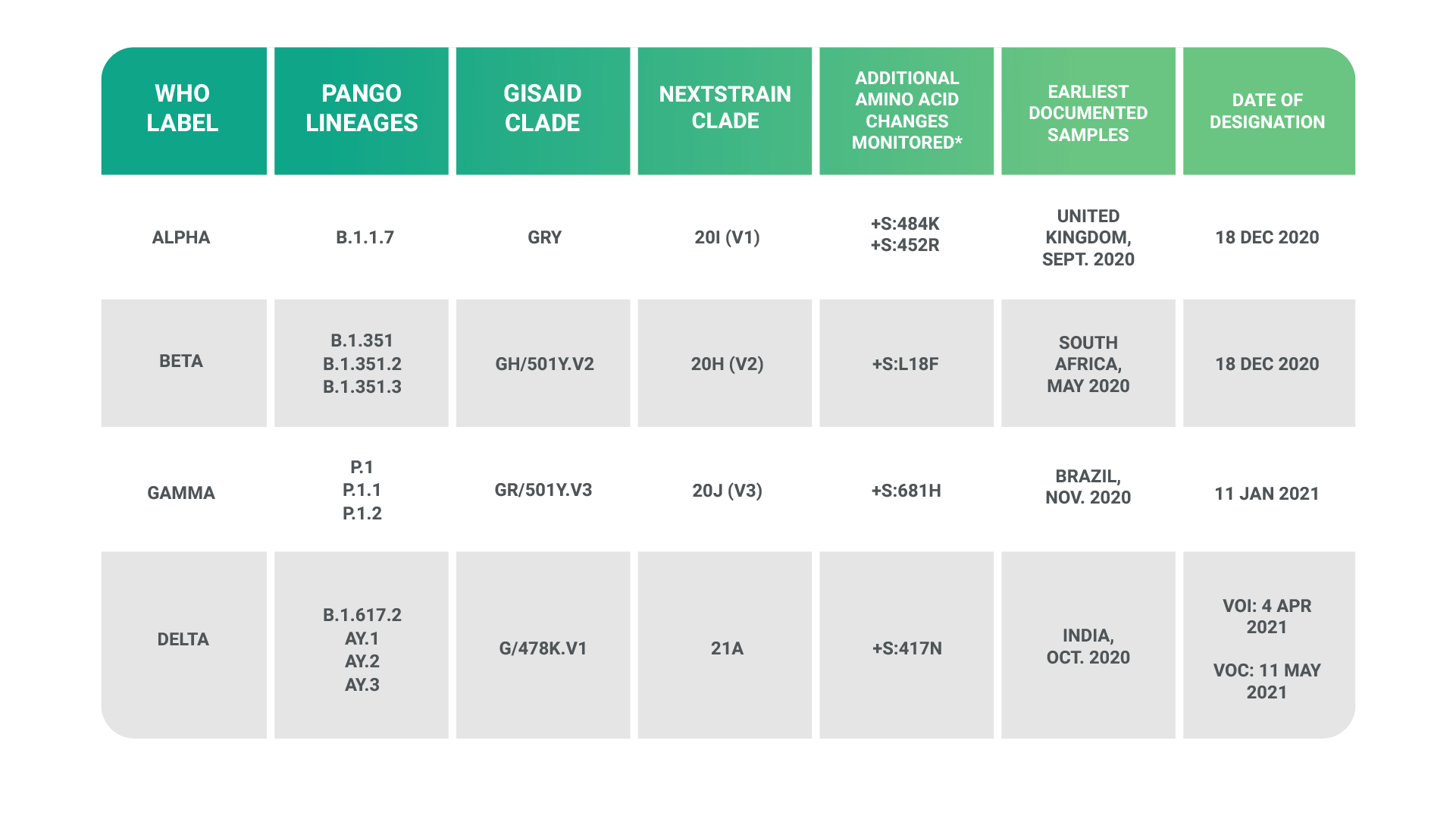Remember when the CDC gave the “all clear” to all fully vaccinated people in the US, stating that wearing a mask in public was no longer necessary? Well, the sudden increase in infections has led the CDC to retract this statement. As of July 27, 2021, they’re now recommending that all Americans wear a mask indoors in public in areas where cases are increasing.
Much more infectious than the original strain of SARS-CoV-2, the B.1.1.7 (Alpha), B.1.351 (Beta), B.1.617.2 (Delta), and P.1 (Gamma) variants circulating in the United States are classified as variants of concern — even in those who have been vaccinated!
Here are three things you need to know about the Delta variant and how you can help keep yourself protected.
Delta is a variant, or different form of the virus that causes COVID-19
Delta is the name for the B.1.617.2. variant, a SARS-CoV-2 mutation that originally surfaced in India. The first case of Delta was identified in December 2020, and it quickly spread throughout India and Great Britain, becoming the dominant strain.
Delta has caused nearly 99% of the recent COVID-19 cases in the US
According to the Centers for Disease Control and Prevention, Delta was responsible for 98.8% of all new infections in the United States as of August 14th, 2021.
If you do get infected with Delta, you may experience symptoms that are different from the original COVID-19 strain. Rather than experiencing loss of taste or smell during the early stages of the infection, you’re more likely to experience fever, headache, sore throat and runny nose, according to an article from the American Society of Microbiology.
This means that it might be hard to know the difference between a common cold, seasonal allergies, and a Delta variant infection. If you develop any cold-like symptoms, it’s wise to get an at-home COVID-19 PCR test to protect those around you.
Delta spreads more easily than the original virus, which could lead to more COVID-19 cases
The World Health Organization (WHO) has called this version of the virus “the fastest and fittest,” while the CDC has labeled Delta as “a variant of concern,” using a designation also given to the Alpha strain that first appeared in Great Britain, the Beta strain that first surfaced in South Africa, and the Gamma strain identified in Brazil.
How fast the Delta variant will spread will depend on where you live and how many people in your location are vaccinated.
In addition to the Delta variant, the Alpha, Beta, and Gamma variants have also been labeled Variants of Concern (VOC) by the World Health Organization. A SARS-CoV-2 VOC is linked to one or more of the following global public health concerns:
- Increased spread of COVID-19
- Change in symptoms or increase in infection
- A reduction in the effectiveness of public health and social measures, such as social distancing, vaccines, and mask-wearing

Keep yourself protected
Approximately 360 million doses of the COVID-19 vaccine have been administered in the United States to date, with approximately 162 million people that have received both doses. That means more than half of the U.S. population over the age of 12 — just over 60 percent of the whole population — is fully vaccinated.
Getting fully vaccinated is the best way to protect yourself from Delta. All three vaccines, Pfizer-BioNTech, Moderna, and Johnson & Johnson, are proven to be effective in varying degrees against the original variant of the coronavirus, SARS-CoV-2, that causes COVID-19.
Whether or not you are vaccinated, it’s also important to follow CDC prevention guidelines for vaccinated and unvaccinated people.
Another easy way to keep yourself and others safe, even if you’ve been vaccinated, is with frequent testing. An at-home COVID-19 PCR test from empowerDX effectively detects (but does not specify) the Delta variant, so you can do your part to prevent the spread of the virus in your community.
Take action today and get tested!


